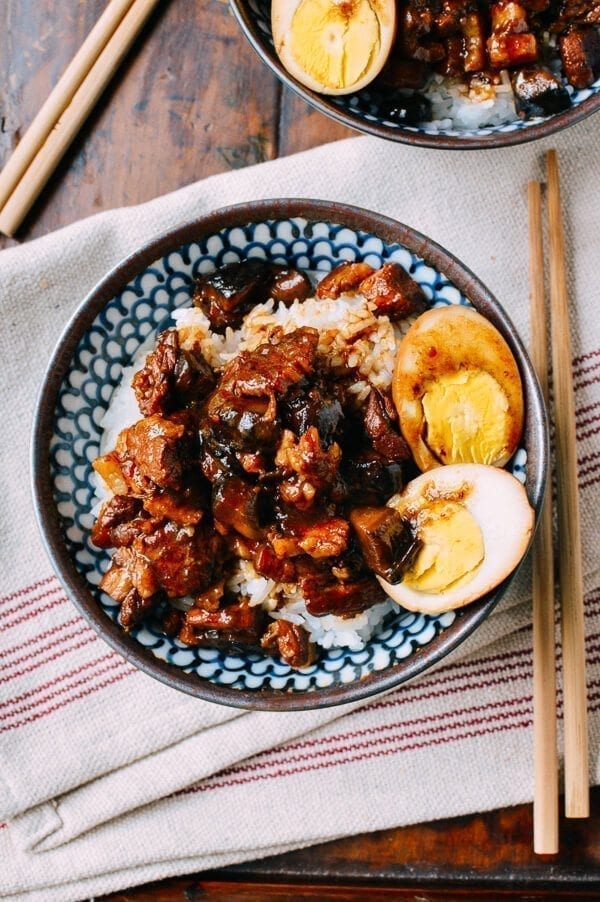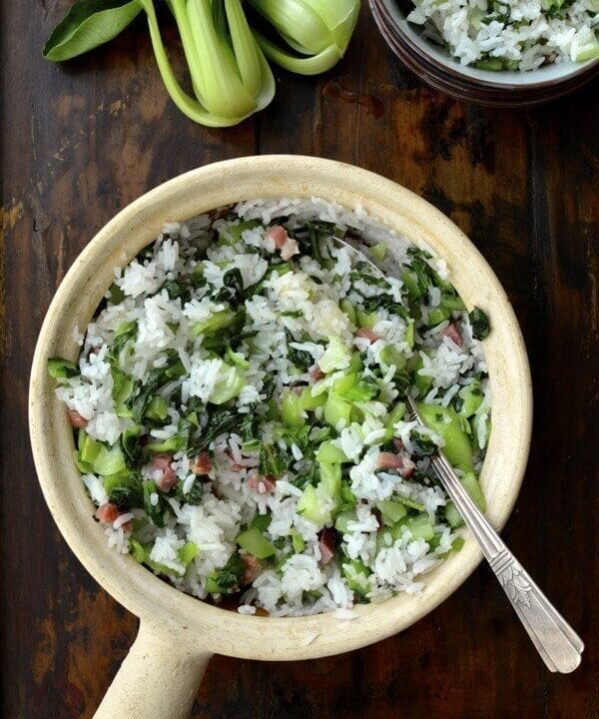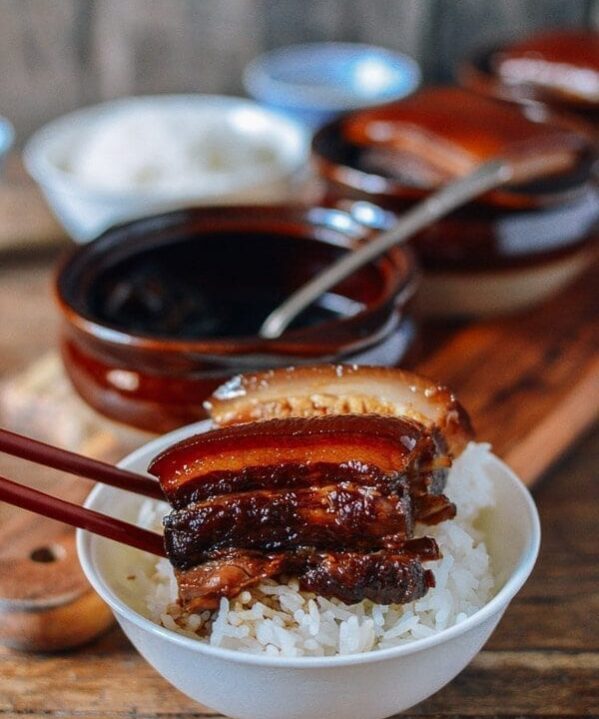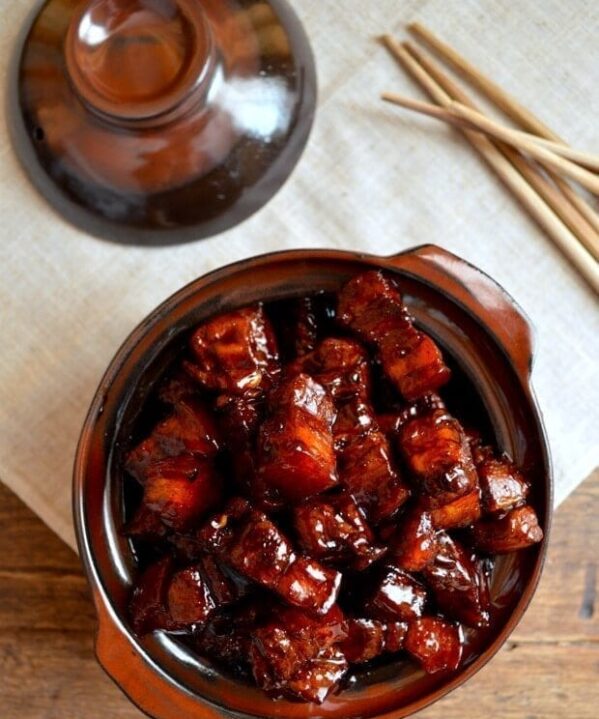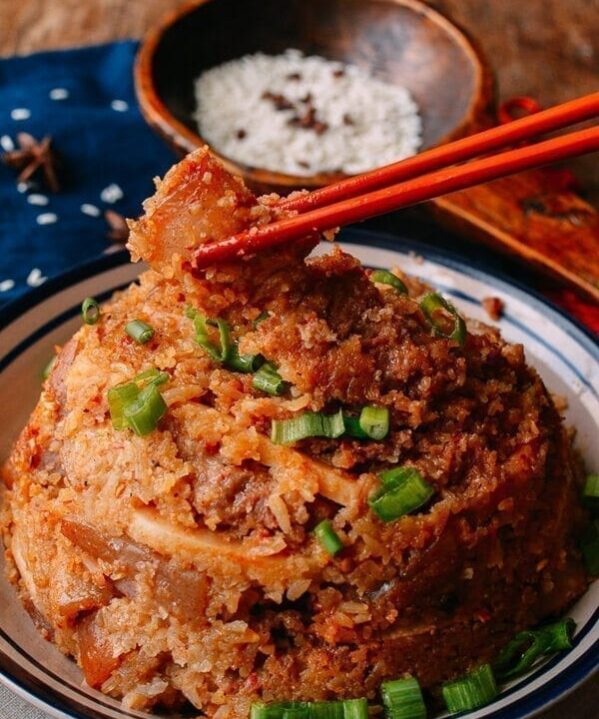I don’t think there’s any debate on this issue. Lu rou fan (滷肉饭) is one of THE most beloved Taiwanese comfort foods. Second only perhaps to a piping bowl of beef noodle soup (and even then, a very close second).
There is, however, an on-going debate on whether this dish originated in Taiwan or Shandong, China. Apparently, 滷肉饭 and 鲁肉饭 are written differently, but both sound alike and the latter states the origin of Shandong in its name. To help set the record straight, the Taipei government actually launched a huge campaign in 2011, handing out 1000 bowls of lu rou fan and claiming ownership of the dish. That’s dedication, my friends. Can you imagine the U.S. government handing out a thousand apple pies or cheeseburgers, in the quest to put their political weight behind a food item?
Just to be clear, I’m not about to open up any arguments here. Quarreling at the dinner table is bad for the digestion. I’m just happy that this dish has been passed down through so many generations and that we get to enjoy it today. I decided to post this recipe after watching a Taiwanese travel show that pretty much involved two guys crossing the country to try all the best local versions of lu rou fan they could find. As I watched them happily slurp up the rice and morsels of pork as one would a bowl of noodles, I decided it was time to make my own.
The dish is a bit similar to the traditional Shanghainese dish, hong shao rou, or red cooked pork. We love that dish so much that we have TWO recipes for it. My Shanghai pork belly recipe, and my mother’s old school Shanghai pork belly recipe. The difference is in the aromatics and spices used, as well as the size at which the pork belly is cut. While hong shao rou involves big, luscious chunks of pork belly, lu rou fan is almost like a braised meat sauce.
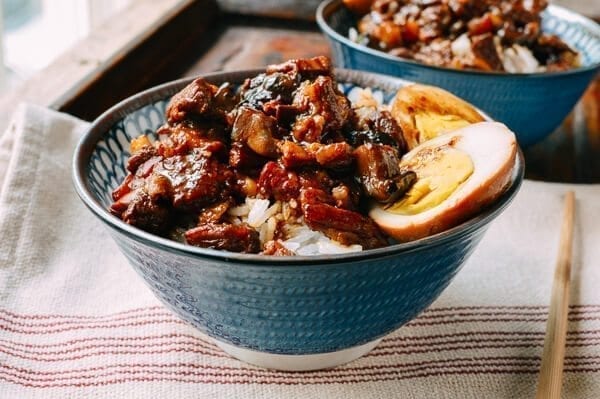
In the old days, eating meat was often a luxury. How does one feed an entire family in the rare moment one has a small piece of pork to work with? You cut it into small pieces, braise it for a long time to create a savory braised meat sauce that’s bursting with flavor, and mix it with lots of steaming, comforting rice so the whole family can enjoy it. Genius.
Okay, before we start, I want to point out a few things:
- Use pork belly with skin, and don’t shy away from the fat. We’re going traditional here, and this is not a dish for dieters or low-fat substitutes. We have lots of other recipes for those looking for healthier options. Check out the vegetarian section!
- You can use fresh or dried shiitake mushrooms. Dried shiitakes will be stronger in flavor.
- You can braise the meat longer if you like; it’s the perfect dish to make in a slow-cooker, if that’s your kind of thing.
- Use the lowest heat possible while simmering. At the end, you’ll want to thicken the sauce over higher heat, but you don’t want it to dry up.
Lu Rou Fan (Taiwanese Braised Pork Rice Bowl): Recipe Instructions
Make a spice packet by tying the following ingredients in a piece of cheesecloth with kitchen string: star anise, Chinese cinnamon stick, cloves, bay leaves, Sichuan peppercorns, dried tangerine peel, and ginger.
Bring a medium pot of water to a boil (enough so that the pork belly will be fully submerged), and blanch the chopped pork belly for 1 minute. Drain, rinse clean of any scum, and set aside.
Heat the oil in a wok over low heat, and add the rock sugar (or granulated sugar). Cook the sugar until it starts to melt and then add the onions or shallots. Turn up the heat to medium high and stir-fry for 1 minute. Add the shiitake mushrooms and stir-fry for another couple minutes.
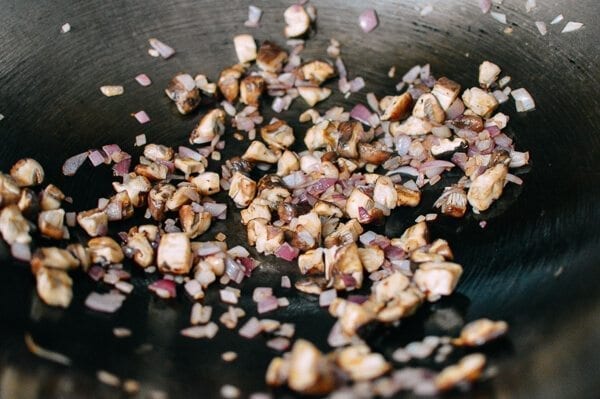
Add the blanched pork, shaoxing wine, light soy sauce, dark soy sauce, and water.
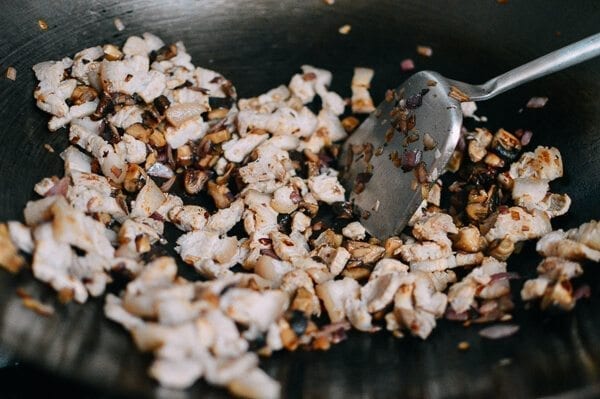
Stir and bring the mixture to a boil. Once boiling, add the spice packet, along with the peeled hardboiled eggs and turn the heat to the lowest setting. Simmer for 1 1/2 hours, stirring occasionally to prevent sticking.
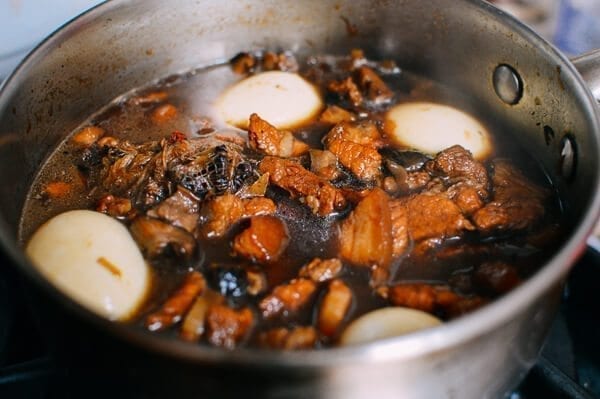
At this point the meat should be fall-apart tender.
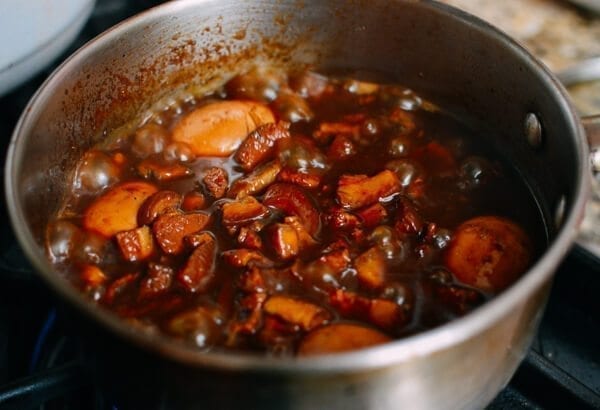
To finish the dish, remove the spice packet and turn up the heat to medium high to thicken the sauce, stirring occasionally. This process should take about 5-minutes. The sauce should be thick enough to coat a spoon, but there should still be plenty of it left. Serve over steamed white rice.
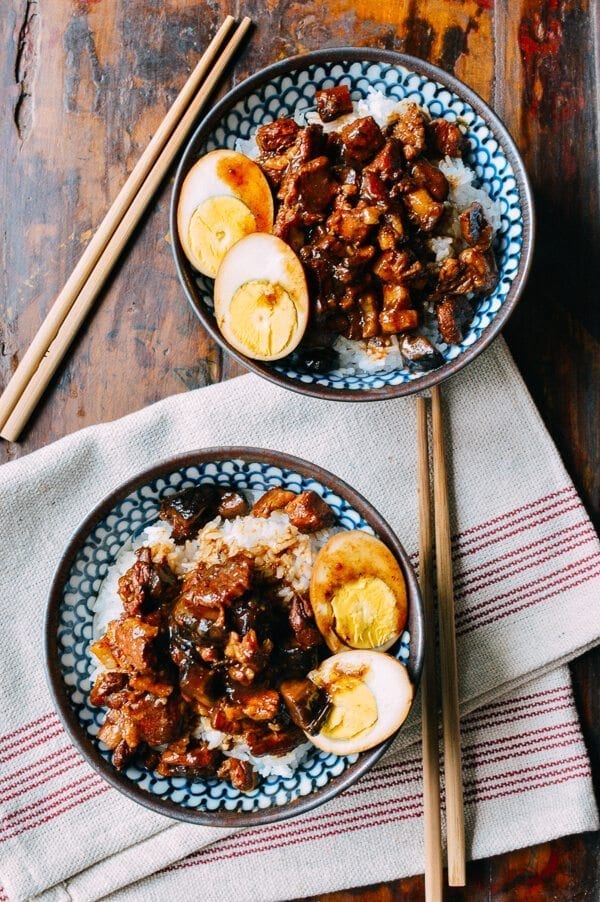
In the meantime, make plenty of rice and most importantly: don’t forget to share this favorite Taiwanese braised pork belly rice bowl!
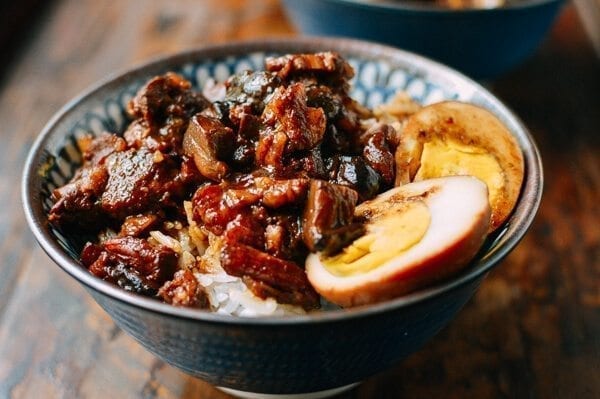
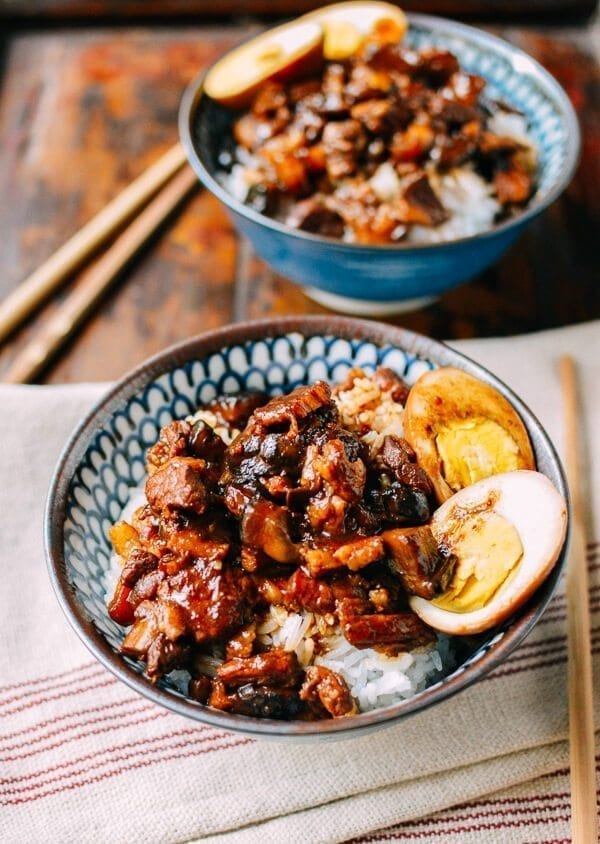
Lu Rou Fan (Taiwanese Braised Pork Rice Bowl)
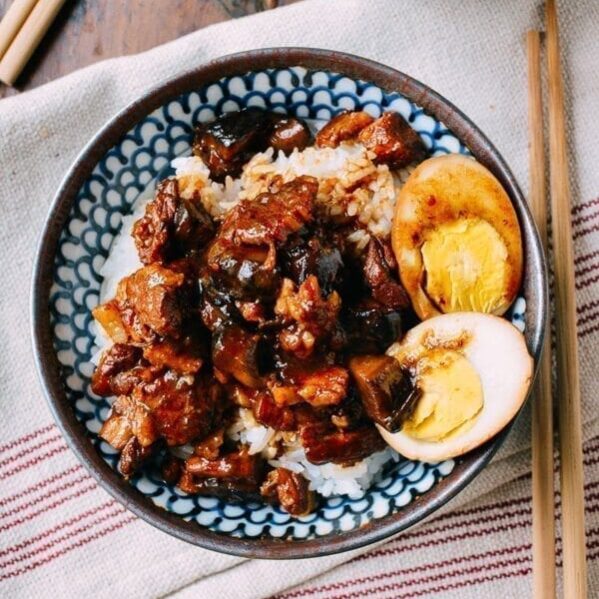
Ingredients
You'll need:
- 1 lb skin-on pork belly (450g, cut into 1/2” pieces)
- 2 teaspoons oil
- 0.9 oz. rock sugar (25g, or about 1 1/2 tablespoons granulated sugar)
- 1 small onion or a couple of shallots (diced)
- 8 shiitake mushrooms (diced into 1/2” pieces)
- 1/4 cup shaoxing wine (60 ml)
- 3 tablespoons light soy sauce (45 ml)
- 2 tablespoons dark soy sauce (30 ml)
- 2 cups water (475 ml)
- 4 hardboiled eggs (peeled, optional)
For the spices (wrap everything in cheese cloth and tie with kitchen string):
- 3 star anise
- 1 cinnamon stick
- 6 cloves
- 3 bay leaves
- 2 teaspoons Sichuan peppercorns
- 2 pieces dried tangerine peel
- 2 slices fresh ginger
Instructions
- Bring a medium pot of water to a boil (just enough so that the pork will be fully submerged), and blanch the chopped pork belly for 1 minute. Drain, rinse clean of any scum, and set aside.
- Heat the oil in a wok over low heat, and add the sugar. Cook the sugar until it starts to melt and then add the onions. Turn up the heat to medium high and stir-fry the onions for a minute. Add the mushrooms and stir-fry for another couple minutes.
- Add the blanched pork, shaoxing wine, light soy sauce, dark soy sauce and water. Stir and bring the mixture to a boil. Once boiling, add the spices (which should be tied in cheese cloth), along with the peeled hardboiled eggs and turn the heat to the lowest setting. Simmer for 1 1/2 hours, stirring occasionally to prevent sticking.
- At this point the meat should be fall-apart tender. To finish the dish, remove the spice packet and turn up the heat to medium high to thicken the sauce, stirring occasionally. This process should take about 5-minutes. The sauce should be thick enough to coat a spoon, but there should still be plenty of it left. Serve over steamed white rice.
